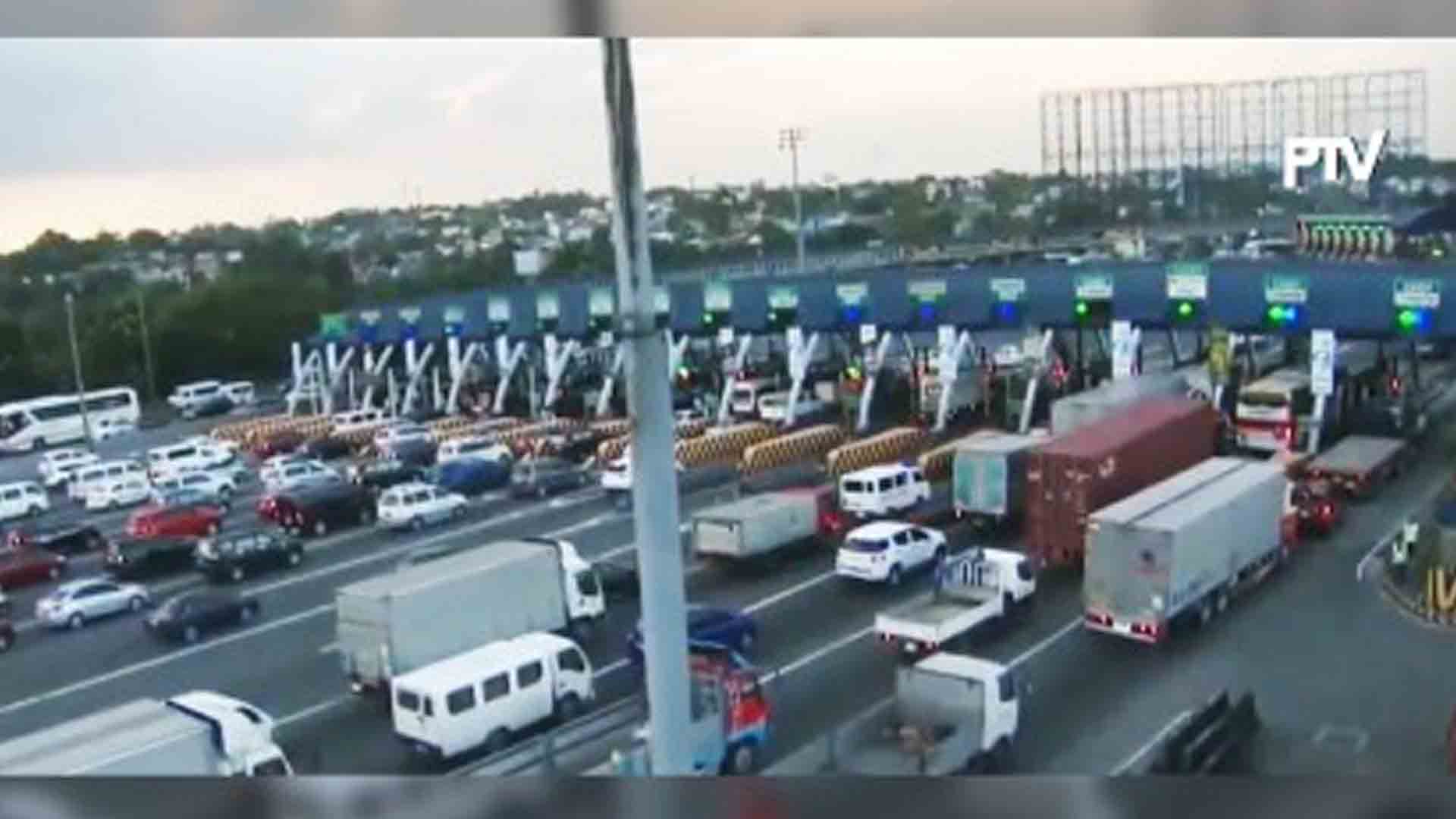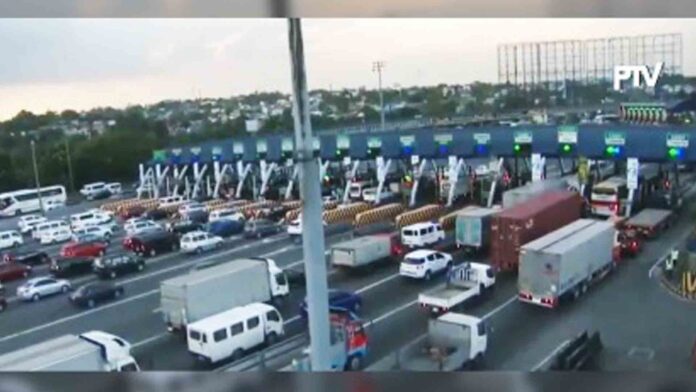The Department of Transportation (DOTr) announced on Monday that it will soon require contactless and cashless transactions in toll expressway as a means to curb the spread of the coronavirus disease 2019 (Covid-19) both in private and public transportation.
In a statement, the DOTr said Department Order 2020-012 ordered the Toll Regulatory Board (TRB), the Land Transportation Office (LTO), and the Land Transportation Franchising and Regulatory Board (LTFRB) to formulate new processes and procedures within three months that would “ensure the smooth implementation of the policy”.
Specifically, it said the TRB is tasked with circulating the rules and regulations requiring concessionaires and operators of toll expressways to fully transition to an electronic toll collection system.
The LTO, it said, is tasked with submitting a study on the ways and means that would allow for a full cashless and contactless system in toll expressways.
The LTFRB, meanwhile, is tasked to monitor the compliance of all public utility vehicles (PUV) on the mandatory use and installation of electronic tags or other cashless systems in their PUVs.
However, the DOTr has not given a specific date for its actual implementation.
The order, signed by DOTr Secretary Arthur Tugade on August 13, would result in the implementation of cashless and contactless transactions at the South Luzon Expressway (SLEX), Manila-Cavite Toll Expressway (CAVITEX), North Luzon Expressway (NLEX), South Metro Manila Skyway, Southern Tagalog Arterial Road (STAR) Tollway, Subic-Clark-Tarlac Expressway (SCTEX), and the Cavite-Laguna Expressway (CALAX).
This includes, it said, “all other road networks, including any extension of the existing expressway facilities mentioned, that may be constructed, established and/or operated as expressway toll facilities”.
The move, Tugade said, helps create a balance between health and safety and an efficient system of transactions in toll expressways.
“We carry with us the burden of ensuring that our transport facilities will not be a transmission vector of the disease, while at the same time, providing an efficient system of public transport. With both tasks at hand, there is a need to strike a balance,” Tugade said.
He said while the new requirement will create an inconvenience to motorists, it will be beneficial in the long-run.
“Naiintindihan natin na hindi laging magiging madali sa umpisa (We understand that it will not be easy at the beginning). If there will be initial inconveniences, let us look forward to the long-term benefit of it,” Tugade said. (PNA)








